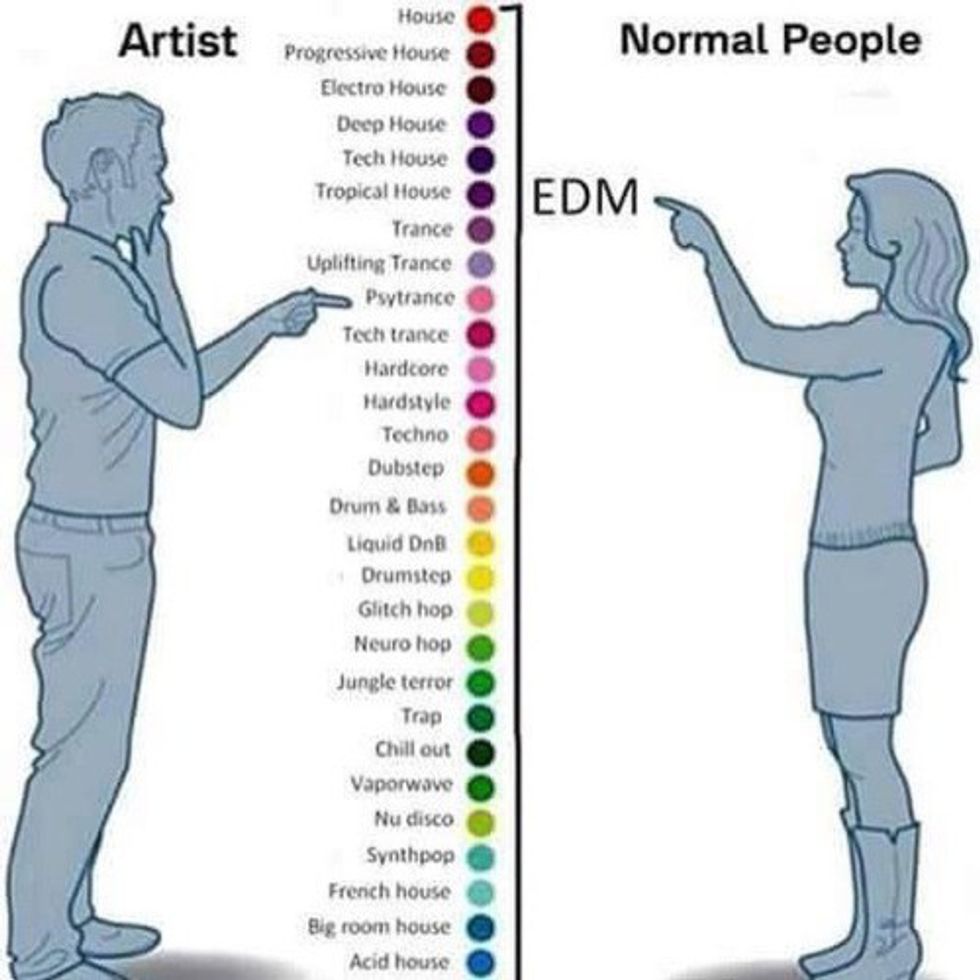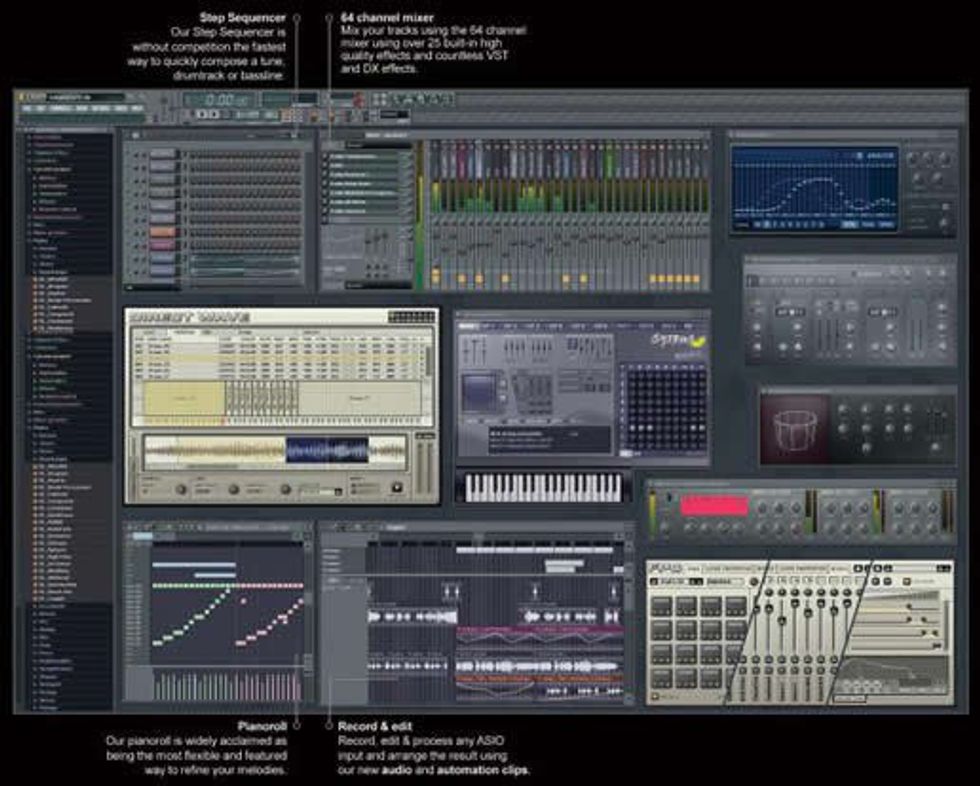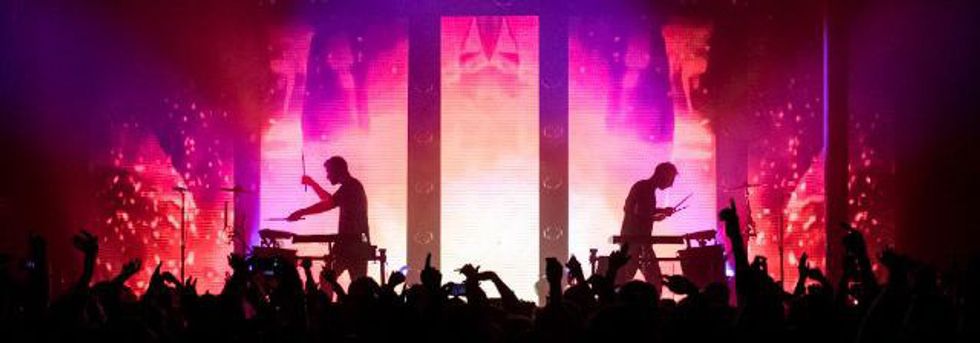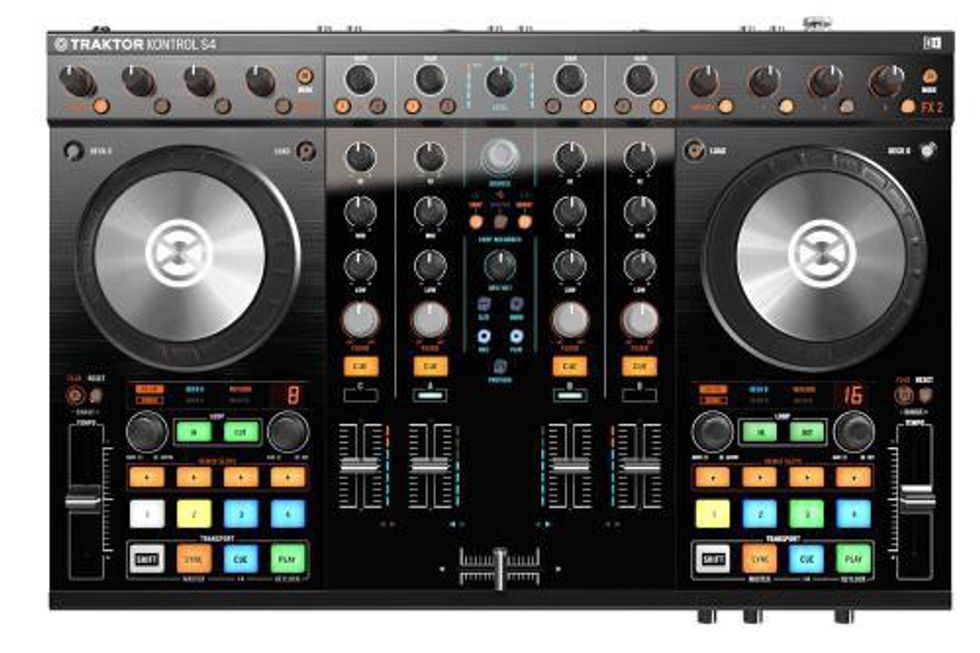In the recent past, no genre of music has been quite so polarizing as Electronic Dance Music. For most people, it is love or hate. Those who love it, reeeally love it. They are engaged with the culture of the music that’s often associated with hula hoops, flashing lights, and ridiculous costumes. They know the meaning (and the accompanying handshake) of PLUR, and they form a tight-knit community based around their love of dancing , bass, and looking out for one another. Those who hate, abhor it. Ravers are drugged-up sluts and frat boys who listen to noise, not real music, and are obsessed with a genre that takes no knowledge or skill to create. EDM is nothing more than a loud, annoying joke.
It’s easy to write off EDM as talentless, unoriginal, and not real music if you look at it from the surface. Men and women pushing buttons, using artificial sounds with no real instruments, that all sound the same…but that’s the most superficial you can get. If you get even a nanometer deeper you’ll see the insane variation between subgenres, and the skill required to produce and play this music.
All EDM Does Not Sound the Same
There are just as many subgenres of Electronic music as Metal, Rap, Classical, etc. And new subgenres are being created every day. While you get some crossover between distinction of subgenres, there is undoubted variation between the main subgenres. Sample some of EDMs most popular tracks of the last several years.
Remember this golden oldie from your middle school/high school dances?
I triple-dog-dare you to tell me any of those sounded the same. Just like there are hundreds of artists who make the same kind of radio rock or the same 3 chord indie folk song (and don’t even get me started on the recycling of Pop music), there are some repeating songs and sounds in EDM. But if you think it all sounds the same, you haven’t explored even a fraction of the genre.
EDM Takes No Skill to Make
On the contrary, EDM may be one of the most difficult genres to work with. Some subgenres require substantially less effort than others, just like other categories of music. But some are the equivalent of computer jazz. Firstly, EDM requires musical literacy to the same degree as any other genre: you know about cadence, time signatures, timber, progression, octaves, and so on. But because you can create and edit sound in any way you like, there is a whole new depth of understanding to consider. You start with a simple sine wave that you manipulate by adding and subtracting frequencies, using modulators for pitch and frequency, and add voicing to expand the sound.
You do this twenty, or more, times to create different sounds that you layer over your beat; and using your knowledge of music theory, you craft the song. Then it's on to equalizing, distorting, and mastering. Just like other music degrees, people can go to school for music production and sound design. It can be an incredibly complicated process where you sit and tweak one sound for an hour just so it provides the perfect undertone to your synth.
Some artists choose to use drum pads to create and play music; this involves assigning a sound to each button on the drum pad, meaning the artist has to find every sample, cut it from its source, edit it, and assign it to the proper pad. That doesn’t count the rhythmic skill necessary to competently play the drum pad. Artists can use well over hundreds of samples in a single song.
It Cant Be Real Music Because There Aren’t Instruments
First of all, see most pop music. The sounds of the instruments have been synthesized or sampled from real instruments. This is the same in EDM. While some of the screeching synths or soaring saws are obviously synthesized, many producers will sample or record real instruments to use in their music. Many electronic artists, such as Disclosure, Odesza, Griz, and Big Gigantic will even perform their shows using real drum kits, horns, and saxophones to get the authentic sound.
EDM Takes No Skill to Perform
Just look at this deck. Do you even know where to begin? A good DJ will know every button like the back of their hand. Just like artists who lip sync and pre-record their sets don’t ruin all of Pop and Rock, DJs who pre-record and fake their mixing are amongst the minority of the genre. DJs have to be listening to their music, mixing their music, and working the crowd all at the same time.
A bad transition or misplaced effect can sometimes ruin a whole show, and at the very least it will throw off the groove of your show as a whole. While most DJs operate at a moderate skill level there are some who take it into the stratosphere. Check out the ungodly scratching, fading, and mixing of DJ Craze and tell me he doesn't have skill.
It's easy to vilify EDM in a number of ways. And while it has its problems with oversaturation and fake DJs, it is without a doubt a real genre of music and requires real skill to create and perform. If you don't like it, you just haven't heard the right kind yet.














 man running in forestPhoto by
man running in forestPhoto by 










